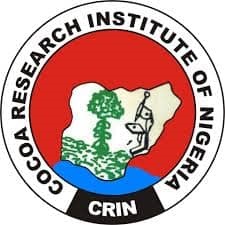Congratulations to Dr. I.F. Abdul-karim for defending his PhD thesis successfully on: “Adoption of Export Standard Practices (ESP) among Coffee-based Farmers in Kogi State, Nigeria” at the Department of Agricultural Economics and Extension Services, Kwara State University, Malete. The study investigated the adoption of export standard practices (ESP) among coffee-based farmers in Kogi State to unravel the level of adoption. Specifically, the study identified the farmers’ sources of information on ESP; examined farmers’ knowledge level on ESP; determined the adoption level of ESP; examined the perceived effect of the adoption of ESP on farmers’ productivity, and identified the constraints to farmers’ adoption of ESP in the study area. The population of the study comprised registered coffee farmers in Kogi State. The study used a structured interview schedule to collect the data. The data collected were analysed using descriptive and inferential statistical tools. Hypotheses were tested with the binary logistic regression model. The findings of the study revealed that: the majority (84.1%) were male, 86.8% were married, 45.8% had secondary education, and 23.3% had primary education. Similarly, 89.9% of the farmers’ cultivated Robusta variety; a little below average (48.0%) acquired their farmland by inheritance, very few (5.3%) of the respondents indicated their awareness of ESP. Also, the information sources were: Fellow farmers (94.7%), Coffee Farmers’ Association (88.5%), and electronic media (such as radio 19.8% and Television 12.8%) were among lists indicated. Furthermore, harvesting ripe berries weekly at the peak Periods was 53.3%, while 43.2% did regular harvesting of berries fortnightly. Also, all the farmers knew about fermentation. Only 30.4% of them were knowledgeable about the storage room ventilation conditions, while about 35.7% knew the thickness of layers of drying. However, 91.6% indicated that they were not aware of ESP and 8.4% were aware of the regular harvesting of ripe berries fortnightly and weekly at peak periods as one of the ESP that was adopted. More so, factors associated with the adoption of ESP such as access to information (Mean = 2.69), and improved seedlings (Mean = 2.64) were the significant factors associated with the adoption of ESP. Other significant factors such as training on wet processing (Mean = 2.42) and adequate maintenance of farms (Mean = 4.15) were the variables that had high perceived effects on farmers’ productivity. Similarly, inadequate extension visits (97.4%), and poor dissemination of information (78.9%), were the major constraints to the adoption of ESP. Poor market prices (Mean = 3.99) was also found as highly severe constraints to the adoption of ESP. Furthermore, there was a positive correlation between the level of education (Odd ratio = 6.129), experience in coffee cultivation (Odd ratio = 5.008), and awareness of ESP (Odd ratio = 15.16) as the significant variables that influenced the adoption of ESP. The study concluded that although the farmer’s socio-economic characteristics influenced the level of adoption, the source of information was very low to the adoption of ESP. The effect of adoption of ESP is negative to the path of the farmers’ knowledge of ESP. Therefore, coffee farmers should be trained on the ESP of coffee on regular basis.


